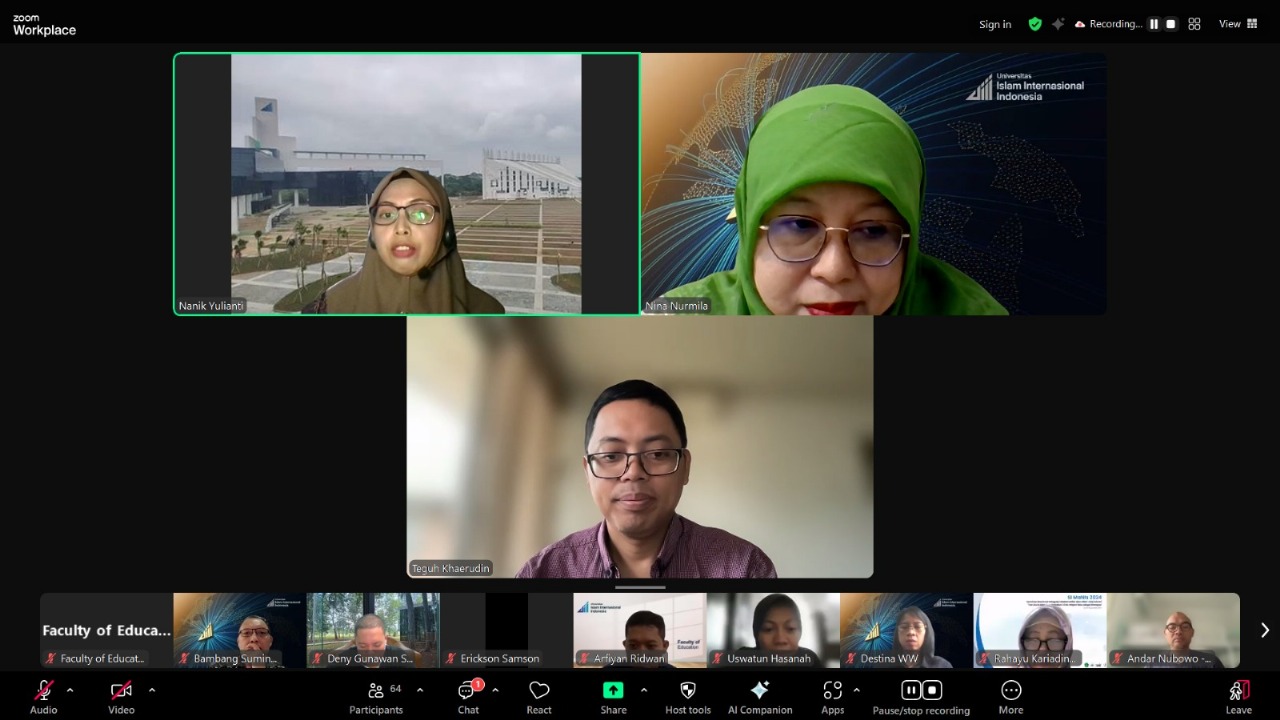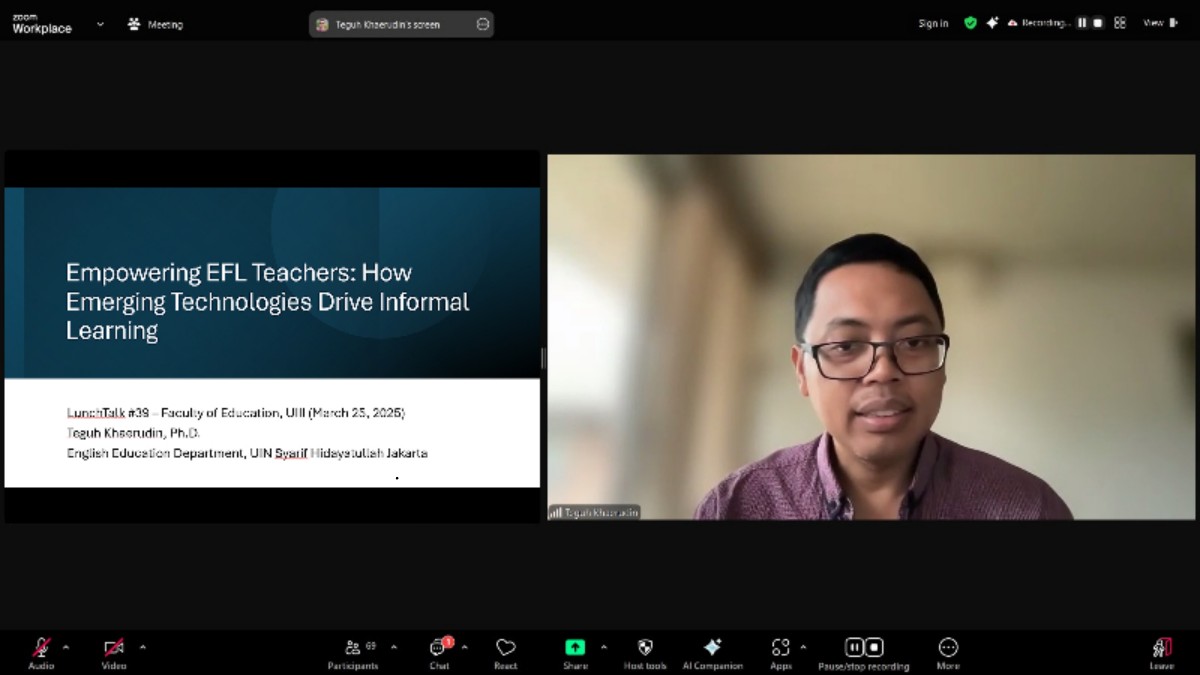More From News
Welcoming Ramadan with a Fresh Spirit: UIII Inaugurates New Mosque Board
February 13, 2026
Cycle of Civilization
February 12, 2026
May 5, 2025
Contributor: Virda Lalitya Umam | Editor: Supriyono | Photo: Afra Fahira

In a time when conventional professional development programs often fall out of sync with digital transformation, Indonesian teachers are finding a new way in improving their competencies—through their smartphones. This was the key insight imparted by Dr. Teguh Khaerudin at the 39th Lunch Talk hosted online by the UIII Faculty of Education on March 25, 2025.
Under the title “Empowering EFL Teachers: How Emerging Technologies Drive Informal Learning,” the UIN Syarif Hidayatullah Jakarta lecturer gave insights into how informal learning is shifting and reshaping the professional development journey of EFL (English as a Foreign Language) teachers in Indonesia.
The insight was drawn from a qualitative case study—part of his PhD research project, sampling eight Indonesian EFL teachers throughout the COVID-19 pandemic. Initially, Dr. Khaerudin’s research aimed to uncover how teachers utilize informal digital learning to integrate technology into their teaching practices.
However, the findings revealed a broader narrative: ‘digital content platforms, social media groups, and online webinars emerged as the primary sources of professional learning for these teachers’. These tools, he said, helped them overcome challenges posed by geography, lack of institutional support, and even poor internet access.
Among the platforms used, WhatsApp and YouTube stood out as some of the most impactful. WhatsApp facilitated peer consultations and brought together teaching communities—playing a pivotal role in building networks, especially in rural regions. Teachers connected through group chats to exchange lesson plans, troubleshoot technical problems, and share resources during lockdowns.
YouTube, on the other hand, was the go-to for step-by-step learning. Teachers didn’t just to learn how to use educational software but also to explore new pedagogical techniques, design engaging materials, and even create their own instructional videos.

As such, these learning strategies cover a broad area, which Dr. Khaerudin categorized as collaborative and independent Informal Teacher Learning (ITL). However, a critical question emerged: Can such informal learning initiatives replace the formal professional development (PD) program? Despite their significance, Dr. Khaerudin argued that ITL is not a substitute for formal professional development (PD), but rather a valuable complement to it.
“While many formal PD programs are rigid, overly broad, and one-size-fits-all, Informal Teacher Learning (ITL) is self-paced, responsive to needs, and tailored to each teacher’s environment,” Dr. Khaerudin said. “Informal learning fills the gap between training and practice, allowing educators to adapt quickly, explore new ideas, and reflect on what works.”
Hence, Dr. Khaerudin highlighted the significant implications of ITL, urging the stakeholders to integrate them into formal professional development frameworks, invest in adequate digital infrastructure, support teacher-led communities, and foster a learning culture for educators and learners alike. He also called for further research into how digital tools can be optimized for sustainable, high-quality learning.
He, though, warned that digital platforms are not absent from challenges. Issues such as misinformation and content overload can hinder the learning process, which in turn emphasizes the need for digital literacy and critical evaluation skills.
Dr. Khaerudin’s suggestions resonates deeply with UIII’s mission to foster educational advancement through cutting-edge research and technological innovation. By promoting adaptive, self-directed learning models and encouraging the use of emerging digital tools, his suggestions mirror UIII’s commitment to empowering educators and learners alike in navigating the evolving landscape of 21st-century education.
Universitas Islam Internasional Indonesia